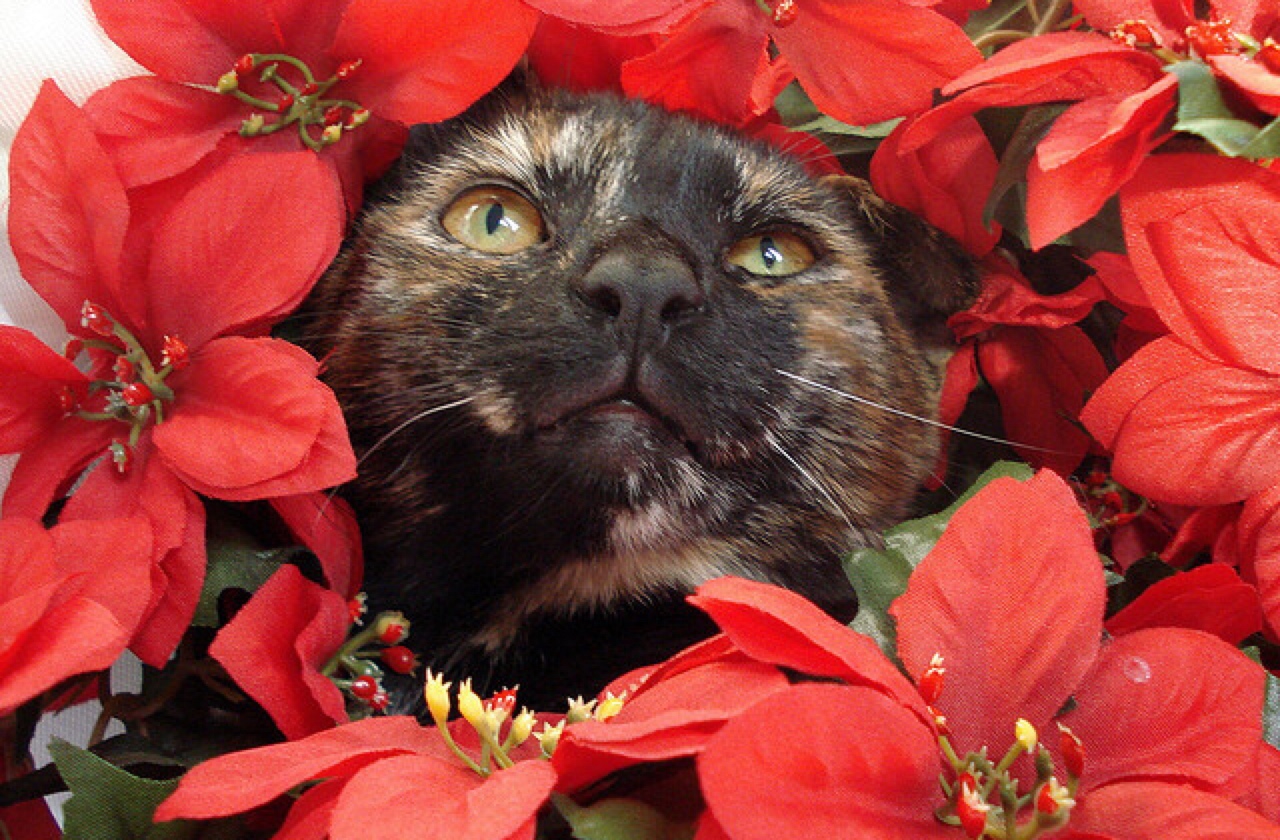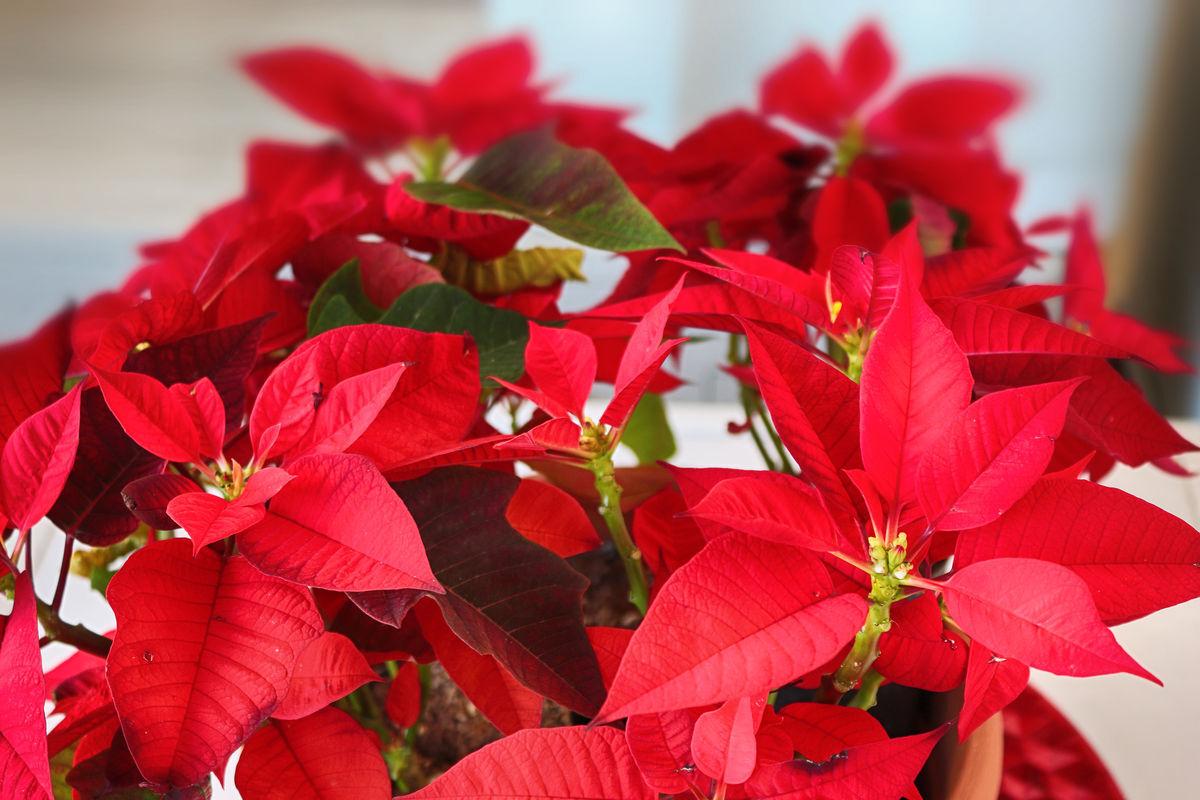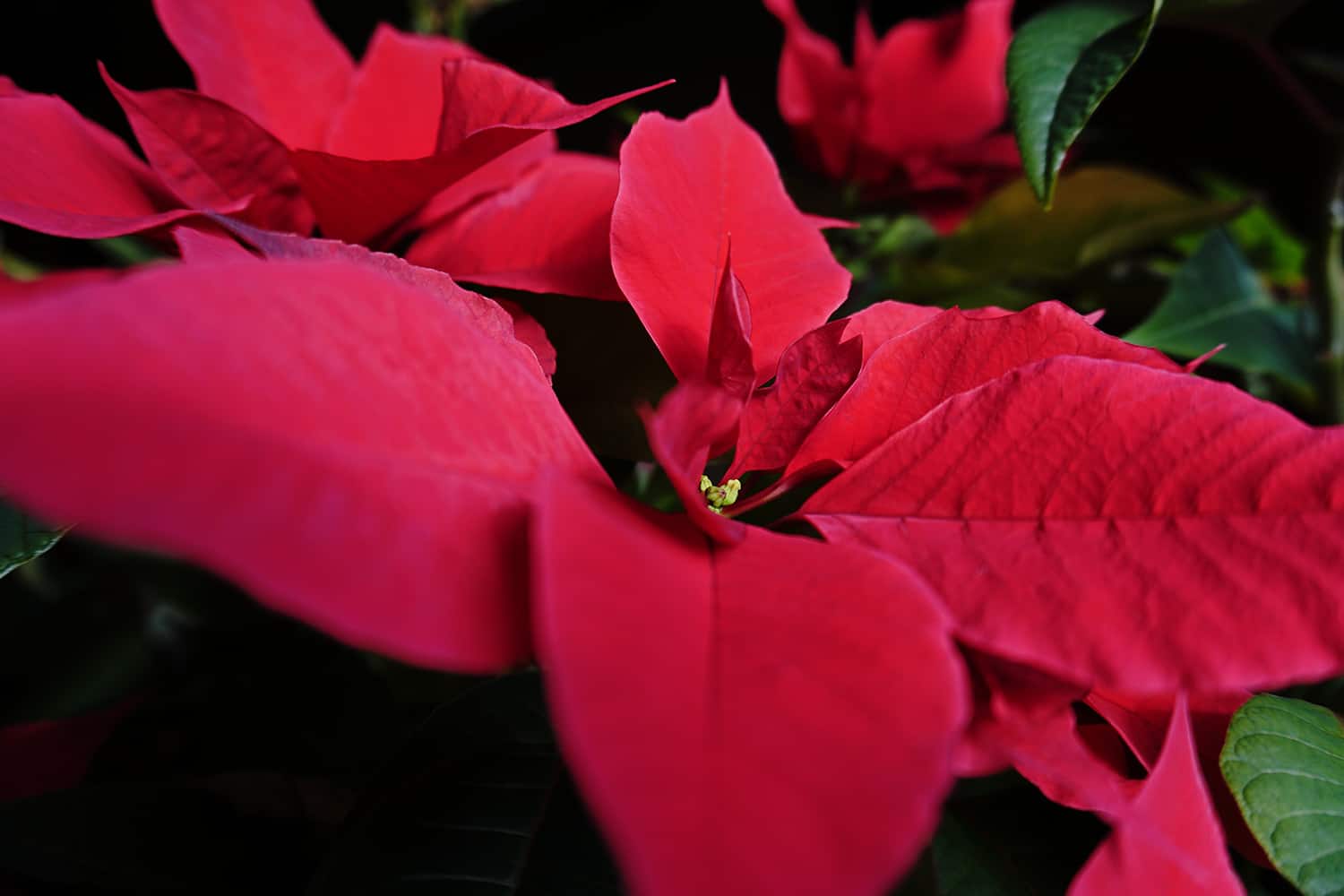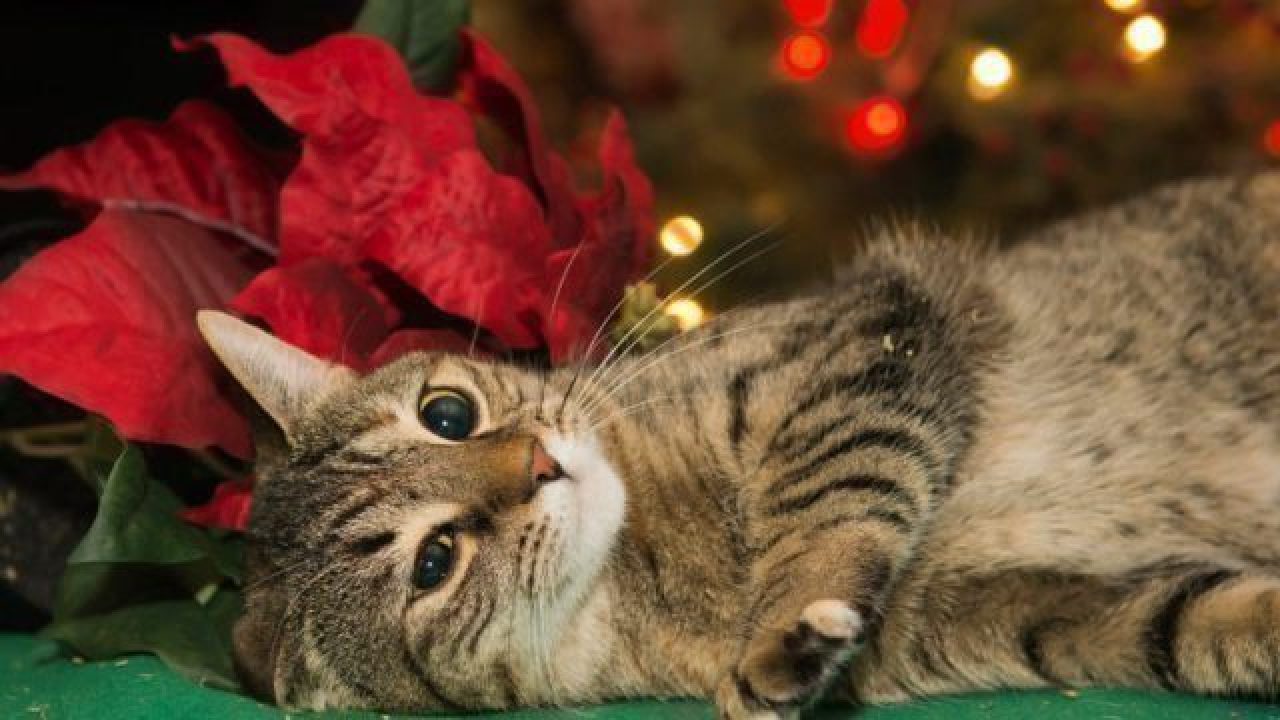Poinsettia Leaves And Cats

If ingested these substances will cause digestive upset such as vomiting drooling or rarely diarrhea may be seen.
Poinsettia leaves and cats. Poinsettias The truth is the poinsettias leaves produce a sap that can irritate your dog or cats mouth and esophagus. New plants indoors and outdoors are tempting for our pets and many will ingest the leaves. The poinsettia may cause a rash on the mouth and skin of a cat who chews the plant.
Poinsettias are easy to recognize due to their bright red pink white or marble-colored leaves. In rare cases it can be fatal but this is usually in young elderly or dehydrated cats. But as a pet owner youve admired them from a far worried that your dog or cat may gnaw on the.
But it is interesting to know that the real flowers are the little yellow buds located where all. If your little one eats a poinsettia leaf she may experience irritation in the form of throwing up and oral discomfort -- think lip licking. Sap in poinsettia leaves is mildly toxic to pets and children and can cause vomiting diarrhea excessive drooling and nausea.
As these things have a habit of doing the toxic potential of poinsettia has become highly exaggerated and many a concerned cat parent now treat poinsettias as persona non grata or as the case may be poinsettia non grata in their. Poinsettias are not very toxic to cats but the milky white sap found in poinsettias contains chemicals called diterpenoid euphorbol esters and saponin-like detergents. That said some cats may be more sensitive and have a more extreme reaction.
Army officer was alleged to have died from consuming a poinsettia leaf says Snopes. During the holidays poinsettias are a popular Christmas plant. Importantly for our companion animals poinsettia are toxic to dogs and cats.
The truth of the matter is that while Poinsettias Euphorbia pulcherrima are mildly toxic for dogs and cats theyre not lethal. It all started back in the early 20th century when the 2-year-old child of a US. If our pet only ingested a bite of the plant the adverse reaction is more than unlikely.



















